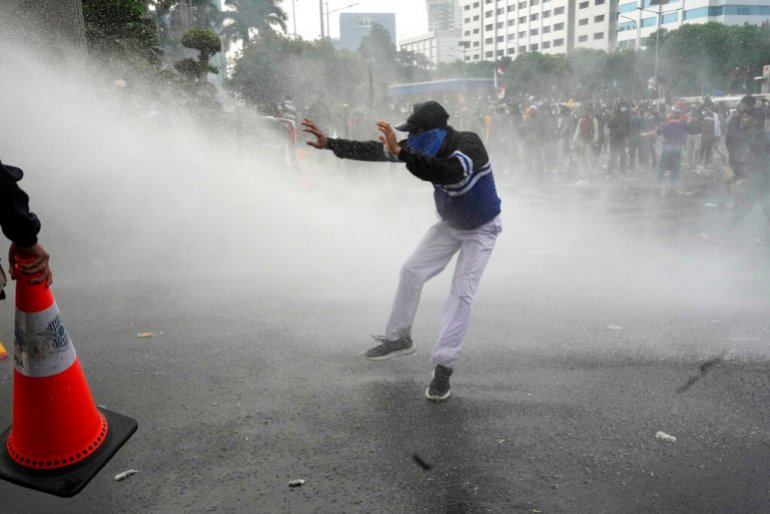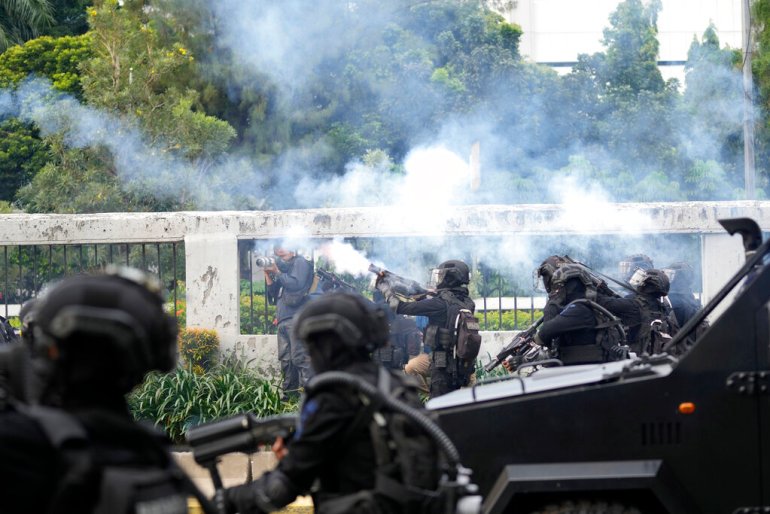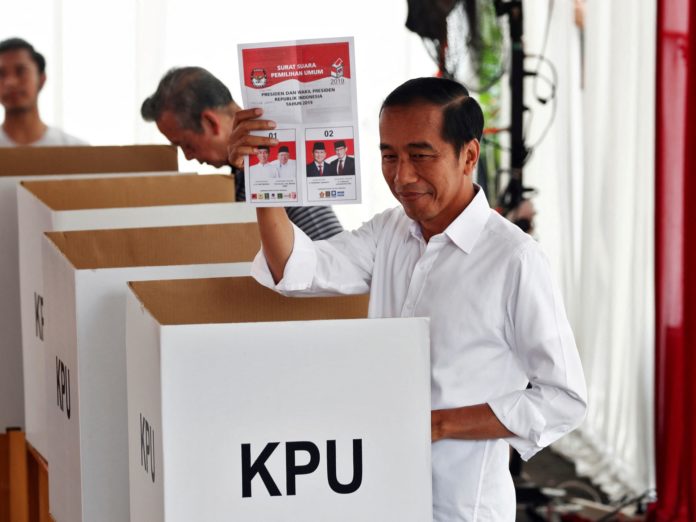Medan, Indonesia – Indonesia’s presidential and general elections have been thrown into jeopardy following a surprise ruling to delay voting by a court in Jakarta, prompting widespread condemnation of the shock, and seemingly unconstitutional, decision.
The Central Jakarta District Court ruled earlier this month that the elections – scheduled to take place in February 2024 – should be delayed for two and a half years, meaning that the earliest the elections could go ahead would be in 2025.
The judge’s ruling followed after a lawsuit was brought by a relatively unknown political party – Prima – which had complained about not being allowed to register to contest the elections.
A three-judge panel ruled that Prima was unfairly disenfranchised when it was unable to submit the required documents electronically due to an error caused by the General Elections Commission website.
But the decision to delay two elections to accommodate a fringe political party has angered many in Indonesia – and raised questions about the court’s motives.
“Considering the backlash the recent court’s decision has caused from both the public and political elites, it is clear that the majority of Indonesians want the elections to go ahead,” Ian Wilson, a lecturer in politics and security studies at Murdoch University in Perth, told Al Jazeera.

“My understanding is that Prima challenged the decision not to allow them to register as a party. What was so shocking was the decision from the court to delay the whole process including the election, it seemed a strange response to the case,” Wilson said.
“It seemed outside the legal authority of the court, so it does prompt speculation that it could have been politically motivated,” he said.
The court said in its March 2 ruling that it wanted to “restore justice and prevent, as soon as possible, any errors, inaccuracies and unprofessionalism”, noting also that an administrative court had earlier rejected Prima’s complaint, forcing the party to escalate matters by filing a civil suit instead.
But was the court’s decision to delay the 2024 elections constitutional? Many think not.
“Ordering the postponement of the election until 2025 is an open violation of the constitution’s mandate,” said Titi Anggraini, an advisory board member of the Association for Elections and Democracy, and a constitutional law lecturer at Universitas Indonesia.
“The General Elections Commission should have just kept going with the stages and the existing schedule” for the elections, said Anggraini, who described the court decision as “strange, awkward and suspicious”, as well as being unconstitutional.
“If it executes the Central Jakarta District Court decision, it will violate the Constitution and disrupt the construction of the Indonesian constitution where the term of office for the president and vice president is set in stone,” she told Al Jazeera.
Niswan Harefa, a lecturer in State Institutions law at Santo Thomas Catholic University in Medan, agreed.
“Anyone can be sued in a civil case, even the president himself. But, in this case, it is the incorrect mechanism to make decisions about the timing of elections. The lawsuit should have been heard by the administrative court,” Harefa told Al Jazeera.
Term limits
Indonesia’s constitution mandates that presidents serve for five years, after which they can only be elected for one more term, meaning that they can only serve a maximum of 10 years in office.
While the constitution was enshrined in law in 1945, following the country’s independence from the Dutch, the time limit of presidents serving only two terms was added in 1999.
That addition occurred during the Reformation Period following the resignation in 1998 of Indonesia’s dictator President Suharto after 30 years in power, and was designed to prevent subsequent presidents from emulating Suharto’s reign.
Over the years, however, there have been murmurs regarding an extension to the maximum number of times that a president can be elected, and which could allow Indonesia’s current president Joko “Jokowi” Widodo to serve a third term in office.
For his part, Widodo has spoken out against any moves to remain in office longer, saying that he supports the General Election Commission’s decision to appeal against the Jakarta court’s decision to delay the votes.
“This controversy has elicited pros and cons, but the government supports the General Elections Commission filing an appeal,” Widodo said in a video statement provided by the presidential secretariat on March 6.

Some have questioned if there may have been more to the judges’ decision than meets the eye, particularly when it appears that the original lawsuit launched by Prima made no reference to a need for the presidential and general elections to be postponed.
Alex Arifianto, a research fellow at the Indonesia Programme at the S Rajaratnam School of International Studies in Singapore, told Al Jazeera that public sentiment around the decision remains high.
“The only legal route for those who wish to change the presidential term is to amend the constitution,” Arifianto said, citing a survey from 2021 which found that 78 percent of Indonesians rejected any proposal to amend it.
Another survey conducted by pollster Y-Publica from February to March this year found that more than 81.5 percent of respondents were against the presidential and general elections being delayed.
“Hence, anyone who insists on amending the constitution would run contrary to the vast majority of Indonesians who do not wish to have it amended to extend the president’s term in office,” Arifianto said.
“Not to mention that it violates a constitutional norm that has been institutionalised for more than two decades since Indonesia became a democracy.”

